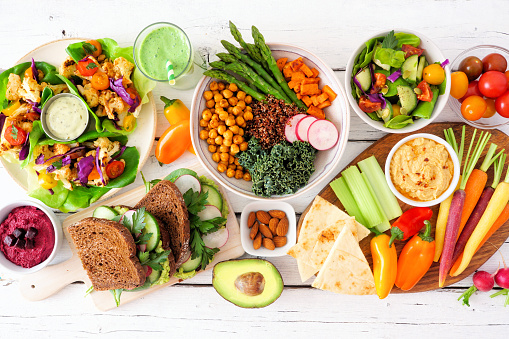
If you suffer from medical conditions such as rheumatoid arthritis, inflammatory bowel disease (IBD), celiac disease and lupus, you’ve probably come across the autoimmune diet. It’s natural for us to want to do everything we can to minimise our pain and assist with autoimmune diseases like the ones mentioned above. The autoimmune diet has helped many on their journey to overcoming these issues and resuming a pain-free life. Today, we’ll look at what you can and can’t eat on the autoimmune diet.
What is the autoimmune diet?
Healthy immune systems have the ability to produce antibodies that attack harmful cells in the body. But, for people with autoimmune diseases, this capability is lost and, instead of fighting harmful cells, the body actually produces them. The autoimmune diet is designed to remove problematic foods and replace them with foods that can bolster the immune system.
How it works:
The autoimmune diet consists of an elimination phase and a step-by-step reintroduction phase. A list of foods, featured below, will be eliminated at first. Then, you choose one food per period of time (usually 5-6 days) to reintroduce and monitor your symptoms. This aims to identify which foods are causing inflammation and pain within the body.
Foods you can’t eat
The autoimmune diet aims to limit a number of foods that you may be consuming, possibly on a daily basis. Here are a list of the illegals:
- Grains: rice, wheat, oats, barley, rye, pasta, bread, and breakfast cereals
- Legumes: lentils, beans, peas, peanuts, tofu, tempeh or peanut butter
- Nightshade vegetables: eggplants, peppers, potatoes, tomatoes,
- Eggs: whole eggs, egg whites, or foods containing these ingredients
- Dairy: cow’s, goat’s, or sheep’s milk, as well as foods derived from these milks
- Nuts and seeds: all nuts and seeds and foods derived from them, such as flours, butter, or oils, cocoa and seed-based spices, such as coriander, cumin, anise, fennel, fenugreek, mustard, and nutmeg
- Certain beverages: alcohol and coffee
- Processed vegetable oils
- Refined or processed sugars
- Food additives and artificial sweeteners
Foods you can eat
- Vegetables except for nightshade vegetables and algae
- Fresh fruit in moderation
- Tubers: sweet potatoes, taro, yams
- Minimally processed meat: wild game, fish, seafood, organ meat, and poultry; meats should be wild, grass-fed or pasture-raised, whenever possible
- Fermented, probiotic-rich foods: non-dairy-based fermented food, such as kombucha, kimchi, sauerkraut, pickles, and coconut kefir
- Minimally processed vegetable oils: olive oil, avocado oil, or coconut oil
- Herbs and spices: as long as they’re not derived from a seed
- Vinegars: balsamic, apple cider, and red wine vinegar, as long as they’re free of added sugars
- Natural sweeteners: maple syrup and honey in moderation
- Certain teas: green and black tea at average intakes of up to 3–4 cups per day
- Bone broth
If you want to seek expert advice on the autoimmune diet, get in touch with a dedicated naturopath like Luke Clarke. Luke uses science and historic wisdom of naturopathic philosophies to treat, improve and heal your health. Get in contact with Luke Clarke today for a free 10-minute consultation.